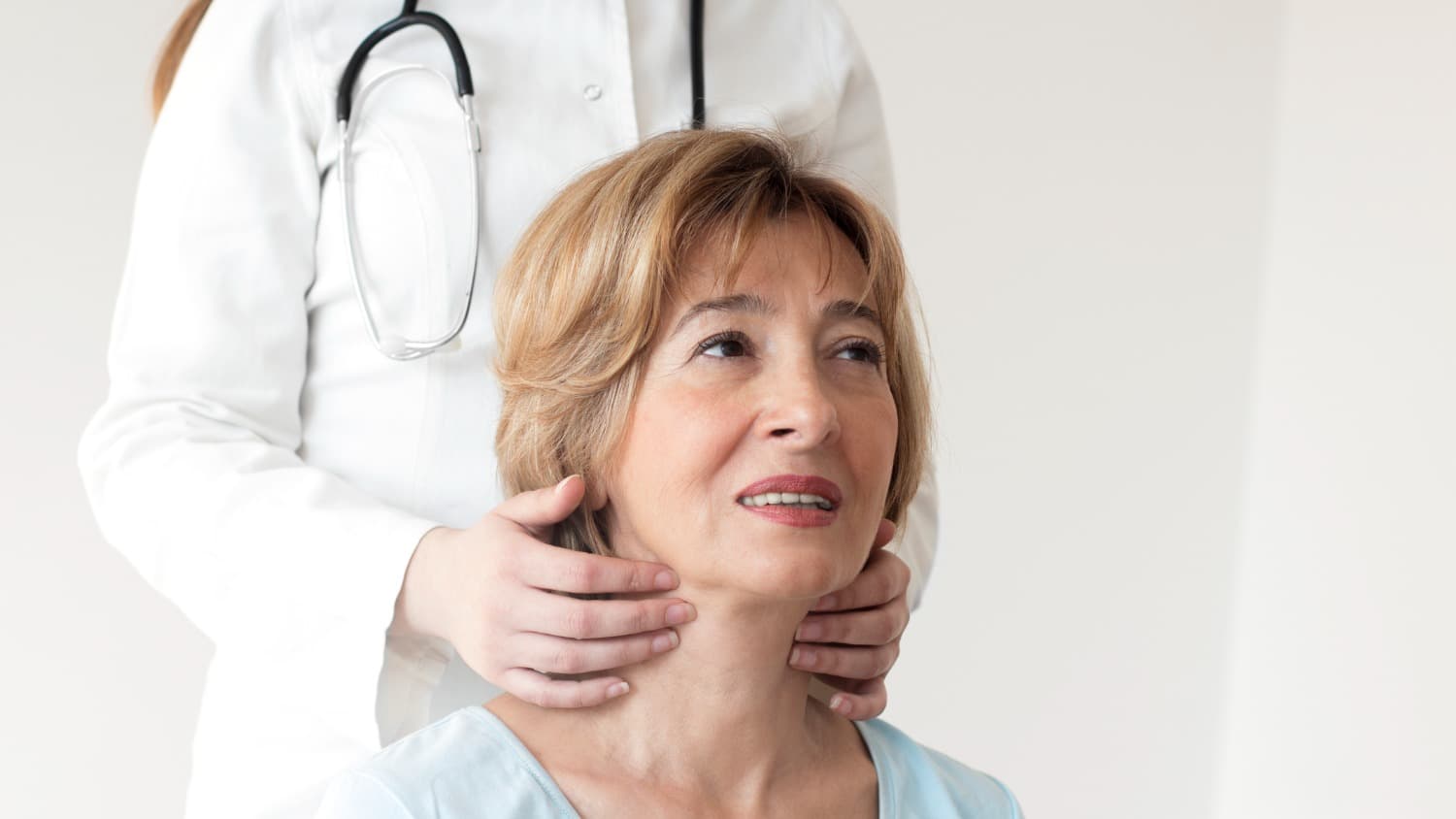
What Thyroid Issues We Could Experience as We Age
The thyroid is a gland located in the front of the neck. It is butterfly-shaped and right below the Adam’s apple. It secretes hormones that affect metabolism and form protein. As with all parts of the body, the thyroid may change with age.
Thyroid disorders increase with age. Yet, symptoms are more subtle the older we get. Thyroid issues are easily misdiagnosed as symptoms attributed to normal aging or to other disorders associated with getting older. Blood tests are used to diagnose most thyroid disorders.
Hypothyroidism
Hypothyroidism is when the thyroid is underactive. Normal aging may have symptoms very similar to hypothyroidism, which can leave it unnoticed, undiagnosed and untreated. Some symptoms of hypothyroidism are swelling, weight gain, dry skin, fatigue, constipation, psychiatric problems and anemia.
Hypothyroidism is common in people over 60 years old and the risk of hypothyroidism increases with further aging. Approximately 5% of people over 60 have hypothyroidism.
Treatment of Hypothyroidism
Treatment of hypothyroidism is with thyroid medications. Blood tests to check thyroid levels must be ordered and monitored by a physician every so often to determine if the medication dosage needs to be adjusted.
Hyperthyroidism
Hyperthyroidism is when the thyroid is overactive. When this occurs, the functions in the body speed up. Younger people often have multiple symptoms with hyperthyroidism, but older individuals may only have one or two symptoms.
Symptoms of an overactive thyroid gland are racing heart, muscle weakness, heat intolerance, sweating, diarrhea, bulging eyes, weight loss and psychiatric problems such as panic attacks, anxiety, mania and even hallucinations. About 3% of people over 60 have hyperthyroidism.
Treatment of Hyperthyroidism
Antithyroid medication, radioactive iodine, and surgery are the treatments available for hyperthyroidism. Often radioactive iodine and surgery may actually result in hypothyroidism. Then, the hypothyroidism would be treated with a lifetime of thyroid replacement medication. Surgery is not as often done in older adults due to increased operative risk.
Sometimes, medications like beta blockers are added to treat the symptoms of hyperthyroidism, such as a fast heart rate.
Goiter
A goiter is an abnormal enlargement of the thyroid gland. It may be enlargement of the entire thyroid or it may be irregular cell growth that forms lumps of nodules. A goiter may develop due to hypothyroidism or hyperthyroidism. Goiter can develop even with normal thyroid function.
Thyroid nodules can be benign or cancerous. Approximately 5% of people with thyroid nodules have cancer.
If you notice lumps or enlargement in the front of your neck, consult your physician. Usually, an ultrasound or CT will be done to better visualize the thyroid. In some instances, a nuclear scan will be done. If the imaging is of concern, you may be referred to an endocrinologist or surgeon to biopsy the area in order to rule out cancer.
In Conclusion
The diagnosis and treatment of thyroid disorders becomes more difficult as we age. Many of the symptoms of hypothyroidism and hyperthyroidism are also associated with normal aging or with other health disorders that are more common in older adults.
Poorly controlled thyroid function can cause problems with the heart, nervous system, kidneys, mental health, eyes, bones or even life-threatening coma. For these reasons, it is important to be aware of the signs and symptoms of thyroid disorders as we age. If you have any concerns about your thyroid, do not hesitate to address these concerns with your healthcare provider.
Let’s Have a Conversation:
Do you have a thyroid disorder? Did you have any signs or symptoms associated with your thyroid disorder? Have you noticed resolution or improvement of these symptoms with treatment of your thyroid disorder?
Tags Medical Conditions







One month ago today I became ill with what proved to be Covid. I’m 71 and I work full time. No alarming symptoms, but I had the fatigue, which still continues, and reduced appetite, as well as some achiness and I now often feel chilly. I’m wondering if I should have my thyroid checked.
I have Hashimoto’s Disease. It was diagnosed in my 50’s. I believe I’ve had thyroid issues since puberty. I now take Armour, a natural medication, because the synthetic meds didn’t work for me.
Another reason for developing goiters is not having enough iodine in our diets. This used to be such a common problem that iodine was added to standard table salt as a way to prevent this. Now many are choosing alternatives such as sea salt or kosher salt. I too use these but along with table salt. And, of course, we’re also taking care to not use too much salt in our diets overall. From what I understand, we don’t require much iodine, so this is easy enough to fit into a healthy diet.
I have had hyper for over 2 years, finally managed to get it under control by eating low iodine foods listed on the Healthline website. Also take each day 1 selenium & 1 zinc to boost immune also 2 vitD in winter & 1 in summer. Sometimes you have to be your own doctor but check against any other medication taken.
I’m allergic to iodine. What else can I do?